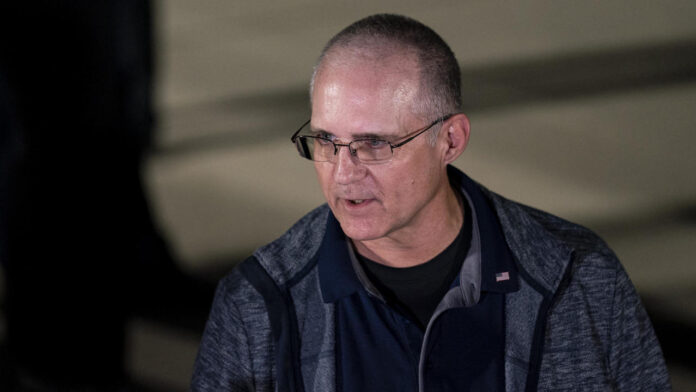Standing on the steps of the U.S. Capitol after meeting with lawmakers, Whelan expressed his commitment to advocating for fellow detainees.
Whelan discussed with legislators ways to enhance support for individuals who return from captivity. He emphasized the need for improved care and resources for those who, like him, might return from harsh conditions. He cited examples of individuals who have endured severe hardships, underscoring the importance of comprehensive support for their reintegration.
Whelan’s release came in August as part of a major international deal involving the U.S., Russia, and several European nations. The agreement saw Russia freeing 16 prisoners, while Western countries released eight Russians. Alongside Whelan, other notable individuals released included Wall Street Journal reporter Evan Gershkovich, Russian-American journalist Alsu Kurmasheva, and Vladimir Kara-Murza, a Kremlin critic and U.S. green card holder.
Arrested in December 2018 while in Russia for a friend’s wedding, Whelan was convicted of espionage in a secretive trial and sentenced to 16 years in 2020. Both he and the U.S. government have consistently denied the espionage charges, alleging that he was used as a political pawn. His case, labeled as wrongful detention by the U.S., drew significant government resources in efforts to secure his release.
Despite efforts to include him in previous prisoner swaps, Whelan remained imprisoned while other detainees, such as Marine veteran Trevor Reed and basketball star Brittney Griner, were released. His persistence in advocating for his freedom included reaching out to officials and media to ensure his situation remained in the spotlight.
Upon returning to the U.S. on August 1, Whelan was greeted by President Biden and Vice President Kamala Harris. Reflecting on his return, Whelan described the adjustment to modern technology and the shock of transitioning from his prior harsh conditions to his current life.
Rep. Haley Stevens remarked that Whelan’s case has heightened awareness about wrongful detentions and serves as a warning to Americans traveling to high-risk areas. She noted that Whelan’s experience and advocacy have drawn increased attention to the plight of detainees and the need for robust support systems.

